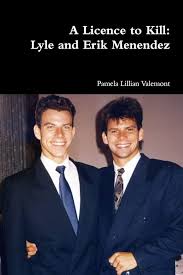The Legacy of Erik Menendez: A 30-Year Reflection

The Infamous Case of Erik Menendez
More than three decades have passed since Erik Menendez and his brother, Lyle, were charged with the murder of their affluent parents, Jose and Kitty Menendez, in 1989. This high-profile case shocked the nation and brought to the forefront issues of domestic abuse, mental health, and the complexities of the criminal justice system. Erik’s trial, which began in 1993, captivated audiences and sparked a national dialogue that continues today.
The Events Leading to the Trial
On August 20, 1989, the bodies of Jose and Kitty Menendez were discovered in their Beverly Hills home, both victims of multiple gunshot wounds. Initially, the brothers were considered witnesses, but as the investigation progressed, incriminating evidence led authorities to suspect their involvement. During the trial, the Menendez brothers claimed they killed their parents in self-defense after enduring years of physical and sexual abuse. This testimony, coupled with a slew of media coverage, turned the courtroom into a spectacle.
Trial and Verdict
The trial was marked by dramatic testimonies, with both brothers painting a harrowing image of their childhood. In 1996, after two trials and a hung jury, they were ultimately found guilty in a highly publicized verdict that reignited debates on child abuse and the judicial process. Erik Menendez received a life sentence without the possibility of parole, which he is currently serving, while Lyle Menendez received the same sentence shortly thereafter.
Impact and Reflection
Over the years, the Menendez case has been the subject of numerous documentaries, books, and even a television miniseries, demonstrating its enduring impact on American society. Psychologists and legal experts have continuously examined the implications of the case, particularly regarding the portrayal of male victims of abuse and the societal response to such claims.
Current Developments
As of 2023, Erik Menendez remains in prison, where he continues to advocate for mental health awareness and reflects on his past. The anniversary of the case serves not just as a memorial for the victims but also as a reminder of the complexities surrounding familial relationships and the historical scrutiny the legal system faces in addressing such issues.
Conclusion
The story of Erik Menendez is more than just a tale of crime; it encapsulates a range of societal issues that resonate with many today. As we reflect on the 30 years since the tragic events unfolded, it remains essential to continue discussions around mental health, the challenges faced by abuse survivors, and how we can foster a more empathetic society for all.









